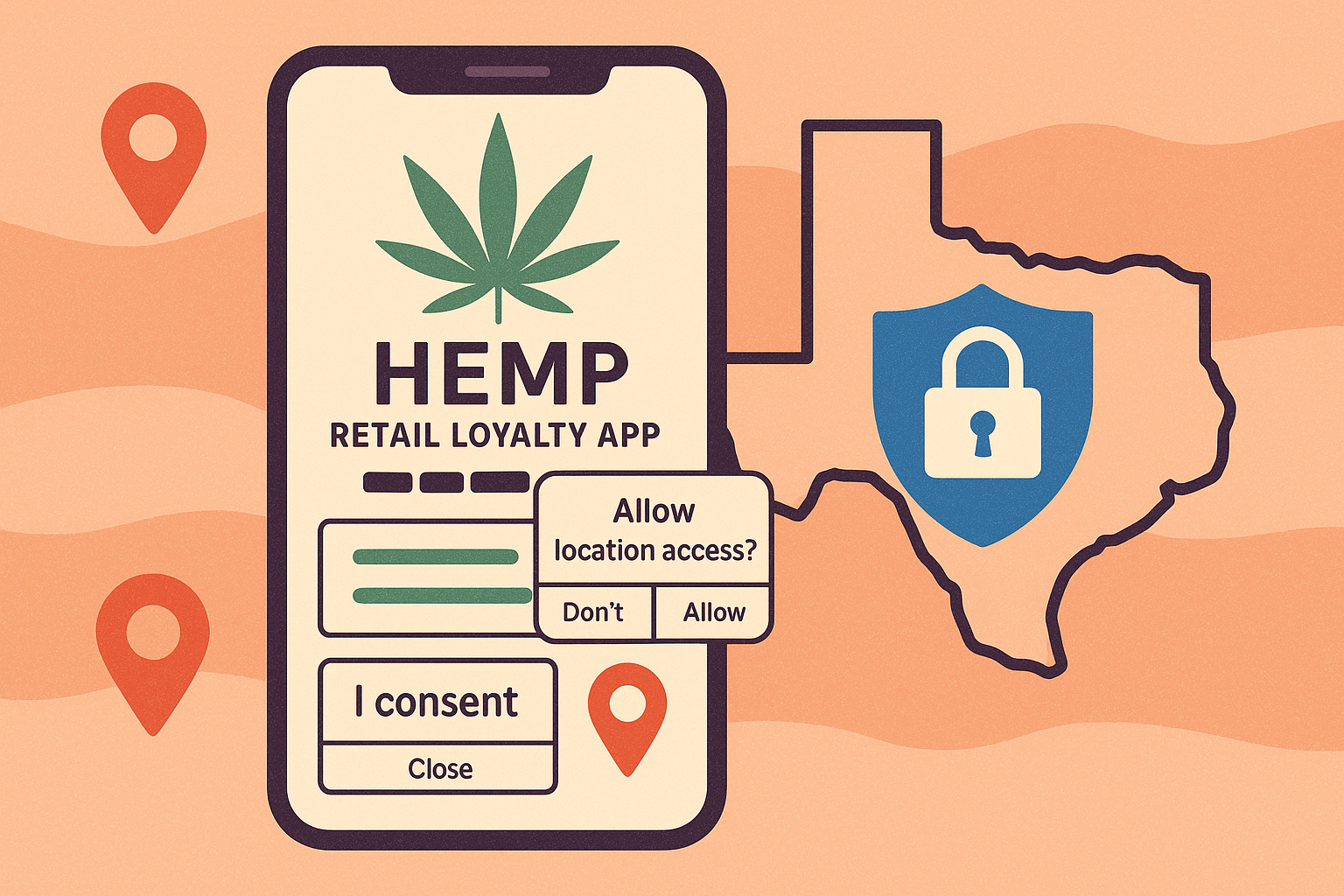
The Texas Data Privacy and Security Act (TDPSA) is ushering in a new era for privacy compliance in 2025, with significant implications for hemp retailers operating digital loyalty programs, push notifications, and targeted advertising. As of January 1, 2025, the law’s requirements for opt-out requests, sensitive data consent, and geolocation tracking are in full effect—and enforcement activities are intensifying. Hemp businesses must urgently review and overhaul both their consumer-facing programs and backend data handling procedures to mitigate growing regulatory risk.
TDPSA applies broadly to businesses that:
Sensitive personal data includes:
Texas’s exceptionally broad definition makes many common hemp retail practices subject to heightened obligations, especially with age-gated promotions and geo-targeted loyalty apps (source: Texas State Law Library; Termly).
While age gates (e.g., 21+ screeners) are the norm in hemp and cannabinoid retail, TDPSA requires a separate and explicit consent mechanism if you collect or process sensitive data (such as geolocation or health info) for loyalty programs or targeted offers. Simply confirming age is no longer enough—the reason your business collects and uses any sensitive data must be clear, with a distinct opt-in obtained before data processing begins.
If your app or website triggers promotional notifications or personalized offers based on precise customer location, this is now classified as processing sensitive personal data. Businesses must:
Failure to obtain proper consent—especially if using third-party adtech SDKs for geotargeted campaigns—will be one of the principal enforcement vectors in 2025 (source: Lightbeam).
Tracking customer purchases for rewards means retaining personal data and often sensitive health or preference data (e.g., hemp-derived cannabinoids). TDPSA grants consumers explicit rights to access, correct, delete, or port their information, and businesses must:
TDPSA requires a clear, up-to-date privacy notice that includes:
Example Texas-Specific Privacy Notice Language:
"Under the Texas Data Privacy and Security Act, Texas residents have the right to know, access, correct, delete, and opt out of the processing of their personal data, including precise geolocation information collected through our [app/website]. To exercise your rights, please email [privacy@yourcompany.com] or use our online request form. We honor browser-based Global Privacy Control (GPC) signals and opt-out requests."
Pro Tips:
Data Minimization: Only collect what is strictly necessary for your loyalty and promo programs. For instance, you likely don’t need ongoing access to a customer’s real-time geolocation—consider alternatives such as zip code or self-selected region.
Retention: Disclose how long you keep purchase histories. A best practice is to purge identifying data after a set period (e.g., 2 years), unless a longer period is needed for legal or compliance reasons.
Deletion Requests: Design workflows to acknowledge consumer access or deletion requests within 45 days. Automate requests where possible but ensure a reliable process for verifying identities to prevent fraud.
Many hemp and cannabinoid businesses use Customer Data Platforms (CDPs) or marketing vendors for loyalty management, personalized email, push notifications, and adtech. TDPSA demands special care in vendor contracts and oversight:
The Texas Attorney General’s office established a dedicated privacy enforcement team to oversee TDPSA compliance (GoodwinLaw). Key risks for hemp retailers in 2025 include:
Violations may result in:
Civil penalties up to $7,500 per violation, cease-and-desist demands, and referral for civil lawsuits. Private rights of action may also be available under certain conditions.
Protect your business and put consumers first—plan proactively as Texas privacy enforcement ramps up. For customized compliance checklists, consent flow templates, and privacy policy updates tailored to your hemp retail operation, visit CannabisRegulations.ai today.